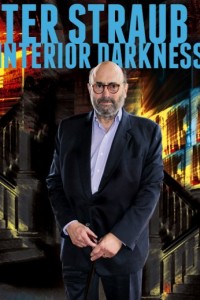Kameron Hurley: Making Excuses for Science Fiction
Telling people who don’t read science fiction and fantasy that I write it is still awkward. My mom used to tell people I wrote ‘‘novels like Stephen King,’’ even though I can’t watch a movie more supernaturally terrifying than Ghostbusters without enduring fierce nightmares, insomnia, and night sweats. I prefer corporeal, knife-wielding villains I can hit in the face.
But as a kid, I let it slide. I didn’t want the attention anyway. I felt incredibly embarrassed that I was writing about fake rebellions in made-up countries while my friends were studying to be architects. They were going to build real, adult things. I was going to write about trolls’ hair and dragons’ gold.
When I published my first novel 20 years later, I found myself faced with the same challenge: how do I talk about this book to people whose entire conception of science fiction and fantasy are built around Star Wars and The Hobbit? How do I convince folks that stories about the dissolution of a marriage in Montreal in 2155 are just as serious an endeavor as writing about the dissolution of a marriage in Montreal 1955?
Friends and family happily clamored to buy my first book, but only a thin sliver actually read it. In conversation with other writers, I found this was not an uncommon thing. Folks love to support you. But reading books they don’t consider ‘‘serious’’ or which are presented as intimidating in style or tone is another matter.
Yet I contributed to this very narrative about my work. Instead of talking about my books as serious (or at least fun) literature, I found myself falling into the same self-conscious trap I had as a kid, when I muttered about how I was writing a story about an expedition to Venus where the volcanos erupted with flowers. I said stuff like: ‘‘Oh, you probably won’t like it. It’s pretty weird,’’ or ‘‘It’s not for everyone,’’ or ‘‘You’ll only like it if you read a lot of science fiction.’’
I anticipated their reactions, and pulled my punches.
One might think I said these things in a pure fit of shame. But as I got older and moved in geekier and geekier circles with folks who loved the same books I did, I recognized that some of this was not shame, but pride. There was some elitism in it of the, ‘‘People like me just get this and you won’t’’ variety.
That’s not pulling a punch. That’s punching yourself in the face.
My parents have left copies of all of my books with every unsuspecting waitress – and in every doctor’s waiting room – from Portland to Seattle. But they never did manage to get past the first few pages of any of my books.
‘‘It’s too weird,’’ my mom said.
My uncle, posting on Facebook, said, ‘‘My brain hurts when I read them.’’
Yet I never hear anyone recommend a Dan Brown novel with quite these same qualifiers. Nobody says, ‘‘Well, you really have to be into cryptology and conspiracy theories to enjoy this.’’ And even though A Heartbreaking Work of Staggering Genius certainly made my head hurt, it didn’t stop a lot of people from buying from it.
I started to wonder if I was limiting my potential readership in the way I was talking about what I wrote. These dual feelings of shame and pride were difficult to juggle. I recognized that my pride was fueled by the shame. Acknowledging to the world that I was wasting my time writing non-serious books about interstellar genocide and religious and political strife, I figured I could save face by letting folks know outside the genre that I was in on the joke, while secretly knowing that a few brave SF/F readers didn’t need me to use small words.
When I looked at what I’d call ‘‘breakout’’ books – books that everybody I know is reading, not just my trusted SF/F circle of buddies – I started to notice a common thread. No one ever tried to sell me on Carrie by saying, ‘‘You really need to have a solid understanding of telekinesis.’’ Not a single Hunger Games fan said, ‘‘You’ll only get it if you’ve already read Battle Royale.’’ Instead, they talked plainly about the stories – the bullied high school girl who gets revenge. The older sister who volunteers to take her younger sister’s place in a fight-to-the-death lottery. They sold me on impossible situations and impossible choices. They sold me on stories.
As science fiction and fantasy have become more mainstream, writers and marketers in other fields have become experts at selling these franchises in mundane terms. Yet I still have conversations with other writers in SF/F where I get these long, windy explanations about the technological theories their current book explores. I do it myself, defaulting to long rants about my worldbuilding and giant flesh eating plants and satellite-reliant magic. Predictably, I’ve found that the folks who hook me on their project are the folks who talk about the stories. Not the backstory. Or the narrative experiment. Or the long, grinding history of their whole made-up world. No, it’s the folks who stick to the basics.
It’s the folks who talk about the people.
Unlike most of my family, my sister isn’t big on reading. It’s not her thing. After she got into healthcare work, she started reading some true crime novels while soaking in the tub, but for the most part, she preferred chatting people up to squinting at words on a page. That’s why it came as such a surprise to hear that she was among the first people to buy – and, more shockingly, read – my first book.
‘‘It was hard,’’ she said. ‘‘Really, really hard. But I swore when we were kids that if you ever wrote a book, I was going to read it.’’
When she told me this I just sat there on my hands, mouth pursed, excuses ready. I was going to tell her it was too weird, you have to like science fiction, it’s not for everyone….
‘‘But you know what?’’ she said. ‘‘After the first few chapters, it got easier. I figured out the bug magic thing. And now I really want to know if Nyx and Rhys hook up, and why Inaya’s a mutant shapeshifter. When’s the next one come out?’’
My sister wasn’t reading a science fiction novel about a perpetual holy war on a far-flung future world, fueled by mad boxers and bug-powered magic. Ok, well, maybe she was. But more importantly to her, she was reading a story about people.
Her reaction made me re-evaluate how I talked to people outside of SF/F about the books I love. In SF/F circles, we delight in complexity and sense-of-wonder. We spend millions upon millions of words debating about the slim difference between ‘‘science fiction’’ and ‘‘fantasy.’’ But folks outside of it really couldn’t care less. People outside of the SF/F bubble just want to know, quickly and simply, what it’s about.
No elitism. No BS.
So now when I talk about Joe Abercrombie’s work, I say he writes grisly political thrillers. Best Served Cold is about a woman seeking revenge for the brutal death of her brother. Ann Leckie’s Ancillary Justice is a colonial-era mystery (one need not say which colonial era). Jo Anderton’s Debris is about a ruined architect trying to uncover who orchestrated her fall from power.
I often wonder if, in speaking about the books we love the way we do, we’ve created the very ghetto we purport to hate. ‘‘Take us seriously!’’ we say, and then retreat into the familiar world of our sub cultures, insisting that only ‘‘real geeks’’ need apply. The broader the appeal of science fiction and fantasy, the more it’s turned inward. After all, if everyone can understand and enjoy the latest hot SF book without reading Heinlein’s entire body of work, well, how good can it really be?
I fear that the language of exclusion, whether we perpetrate it through self-consciousness or a sniff of geeky elitism, is doing the genre more harm than good. Strangling our own potential audience.
‘‘It’s really weird,’’ I tell people, but what they hear is not a challenge. What they hear is, ‘‘It’s not for you.’’
But at the end of the day, we’re not writing ancient Etruscan law books or extinct programming languages or typewriter instruction manuals.
We’re writing stories.
And stories are for everyone.









great essay and agree completely, kameron. BTW heard of CLI Fi yet, a subgenre of sci fi – #clifi – http://klima101.blogspot.tw/2013/12/a-top-sci-fi-novelist-in-north-america.html
Singer-songwriter Neko Case, in an interview with David Dye on “World Cafe”, talks about recently reading Moby Dick and enjoying the experience. She said that anyone who alleges “Oh, it’s a great book, except for all the boring whaling stuff” is someone who never actually read the book. (Though she did admit that, had she read it earlier in life, she would likely have cried “More Queequeg!”) Stories should never have to apologize for the things that make them distinctive and unique and, shall we say, novel. I am with you, Ms. Hurley.
Kameron, this is a terrific and inspiring essay. I think it’s really a structural insight for a wirer and that your stories and writing can only improve if you follow this wisdom to its logical conclusions.
“writer”
All true. And the link to people is emotion. If the story about people has no emotion to feel then it’s as exciting as the white pages in the phone book.
[quote]Not a single Hunger Games fan said, ‘‘You’ll only get it if you’ve already read Battle Royale.’’ Instead, they talked plainly about the stories – the bullied high school girl who gets revenge.[/quote]
Who was the bullied high school girl in the Hunger Games? Maybe it was just a passing reference or something, because I’ve totally forgotten that part.
Or you could have read the whole paragraph that referenced Carrie.
Those last two lines are an absolute clincher: We’re writing stories, and stories are for everyone.
Brilliant essay. I also feel like certain sci-fi stalwarts like Harlan Ellison, who’ve made their bread-and-butter off of science fiction, sell the genre short by snubbing burgeoning writers for wanting to be Sci-Fi Writers and not just Literary Writers, as though there’s something inherently shameful or inferior about writing genre fiction.
I couldn’t agree more – and I am suddenly aware of my own tendency to do the, “Well it’s probably not your sort of thing,” mantra. Which I really need to stop because why deprive myself of potential readers by telling them beforehand that they won’t like it?
Thanks for sharing your experience and opinions. I’ve been having similar problems about how to sell my stories. I write fantasy stories of one kind or another and I always feel like I have to warn the reader. For me instead of saying “It’s a little weird” I always say “but there’s this [specific fantasy part] in it.” I imagine it has the same kind of effect. It’s kind of frustrating because we have to work so hard on our pitches but most recommendations I receive from people is “just read it.” I wish I could get away with that. I’ll definitely try to think of the character conflict when I sell my stories from now on. Thanks!
Maybe I’m not representative, but if you described a story the way you’re proposing, I’d be vastly *less* likely to read it. “High school girl seeks revenge” would never get me to even look at it, while “annual Battle Royale in a dystopian future turns into a revolution”, perhaps (although no fan of Hunger Games). LOTR isn’t “some guys get together and hike to the dump”. Snow Crash isn’t “bored pizza deliveryman explores a future Internet and visits a boat”. etc.
With hard SF in particular, I care about the world, not the interpersonal aspects of the story. I want believable characters, but mainly to see how they interact with the world.
Reading this brilliant essay of yours has come at a perfect time for me. I’ve been pouring over my novel-in-progress and as I do so, people ask me how it’s going, what its about and I always find myself falling into the trap of trying to explain the whole world’s mythology, history, culture…rather than a simple one-sentence summary of the “story” and like you described people nod, trying to support me by feigning interest, but then they move on to other topics.
Thank you Kameron. I wish I had read your essay six months ago. For my first novel, I’ve burned through lots of family and friends using the wrong approach. But on we go.
An article about a struggling writer who longs to have her work accepted by her family, and the public at large, while she juggles internal issues with both elitism and self-esteem.
(Did I learn anything?)
Very eye-opening, and I suffer the same problem, especially now that I’m (self) published. At a time when I want criticism, when I want folks to read it and educate me on what’s good or bad about it, I go and sabotage my chances, especially when I seemingly find myself surrounded by folks who “don’t read SF.” It is time to change myself … now.
Boom!! You nailed it.
Being an SF fan, just giving the story would not sell me. I also need something that makes it original. “Wagon Train in Space” would be a turn-off for me-Star Trek is usually not SF enough for me. I like my SF thoroughly integral to the story. Maybe you could just describe Dune as “A messiah story” and I can’t think of any other way to sum up the story quickly. But I don’t think many non-genre fans would enjoy it if they are sold on the story minus the SF-there’s just so much SF.
@Cyn – I believe Kameron Hurley was referring to the novel Carrie which was mentioned earlier in the paragraph with bullied high school girl who gets revenge quote.
Kameron,
Brilliant. I feel the same way. The way we talk about our books matters. Most of us need to change.
Agree and disagree.
Certainly no one should be ashamed of writing science fiction and fantasy. And certainly, anyone wishing to obtain a wider audience for their works should work at finding ways of describing that work in a way that will appeal to a wider audience.
But lets not give up on the “special” nature of the literature, the people who write it and the people who don’t just read it occasionally (because an author friend arm-twisted them into it): we should be celebrating that “elitist” position and preserving it. Not to exclude anyone from participating, but to provide incentive, to offer the allure of being a part of something special, unique and different.
Science Fiction IS special and different and unique.
A very insightful post made all the more readable by the family anecdotes. Your conclusion is brilliant- in the end it’s all about telling an engaging story with characters you can have feelings for. Really enjoyed reading this.